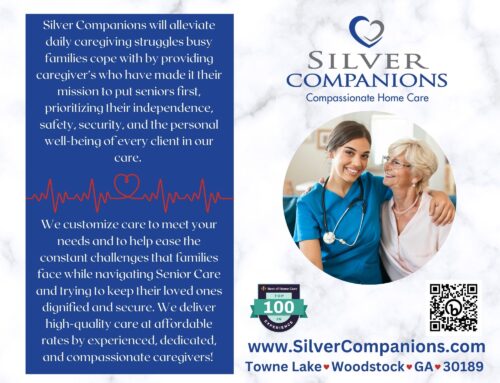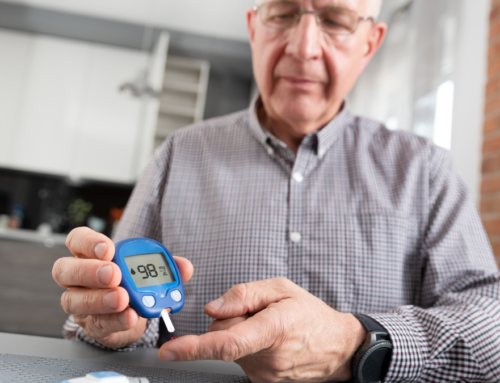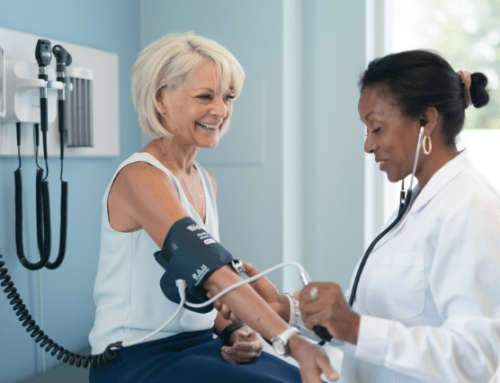
Tips for Protecting Your Eyesight: Glaucoma Awareness for Seniors
(January is Glaucoma Awareness Month )
Do you remember the last time you had an eye exam? If it’s been a while, then this is your friendly reminder that preventative care is key. We may not always think about how aging can affect our sight and decrease our ability to focus without vision aids or include preventative health measures to protect against glaucoma – but it’s essential.
As seniors and/or having senior parents, we want to be proactive in taking preventive steps to make sure our eyesight remains healthy for years to come. In this blog post, we’ll discuss why seniors and their families should be extra aware of glaucoma and help raise awareness around its risk factors plus provide tips on what we should do yearly like have regular eye check-ups to keep those peepers functioning in tip top shape.
What is glaucoma?
Glaucoma is an eye condition caused by increased ocular pressure due to inadequate drainage of aqueous humor (eye fluid), and it affects 3 million Americans — with most cases found in people over 60. It’s one of the leading causes of blindness in seniors and can progress without showing any noticeable symptoms. Unfortunately, it’s also something that seniors – and their family members – may not always think about or be aware of.
Who’s at risk for glaucoma?
Anyone can develop glaucoma, but seniors are particularly prone to the condition. Those who have a family history of glaucoma and those with diabetes or high blood pressure are also at higher risk. It’s important to note that seniors may experience reduced tear production, decreased corneal sensitivity, and changes in their pupils – all of which can increase risk factors for glaucoma.
How does glaucoma affect seniors specifically?
Seniors with glaucoma may experience blurred or fluctuating vision, eye pain and redness, headaches, halos around lights and difficulty adapting to darkness. If not treated, seniors with glaucoma can suffer from blindness. As seniors age, their risk for developing certain medical conditions related to glaucoma such as cataracts and macular degeneration also increases.
How to spot the symptoms of glaucoma
Some seniors may not experience any symptoms of glaucoma until it is advanced. That’s why regular eye exams are important for seniors to detect the disease in its early stages.
However, seniors should be aware of some warning signs that might indicate glaucoma:
- Blurry or hazy vision
- Difficulty focusing on objects far away
- Seeing rings of halos around lights
- Experiencing eye pain, redness, and/or itchiness
- Having a sudden increase in sensitivity to light
- Developing tunnel vision
If seniors experience any of these symptoms or suspect they may have glaucoma, they should seek medical attention right away. Early diagnosis and treatment can help seniors protect their vision for years to come.
Different treatment options available for glaucoma
If seniors are diagnosed with glaucoma, there are several treatment options available. Depending on the severity of their condition, they may be prescribed medications to lower their ocular pressure and reduce the risk of vision loss. Other seniors may need to undergo laser surgery or conventional surgery in order to open up drainage pathways for the eye fluid. It’s important for seniors to talk to their doctor about the best treatment options available and follow through with their prescribed treatments.
Tips for preventing glaucoma
Watch your diet
Eating a balanced diet with dark, leafy greens and fish can help keep your eyes healthy and reduce the risk of glaucoma.
Reduce salt intake
Having too much salt in the diet can increase ocular pressure and lead to glaucoma. It’s important for seniors to reduce their intake of salty foods and snacks, as well as processed foods that are high in sodium.
Exercise regularly
Exercising regularly can help seniors maintain a healthy weight and reduce the risk of glaucoma. It’s especially important to focus on eye exercises, such as eye-tracking movements or focusing on objects in the distance.
Quit smoking
Smoking is bad for overall health, but it can also cause damage to your eyesight. Quitting smoking can reduce the risk of glaucoma and other eye diseases.
Reduce your intake of caffeine and alcohol
Although seniors may enjoy a cup of coffee or tea, too much caffeine and alcohol can lead to increased ocular pressure. To reduce the risk of glaucoma, seniors should limit their intake of both caffeine and alcohol.
Wear sunglasses when outdoors
Protection from the sun’s ultraviolet rays is essential for seniors to reduce the risk of glaucoma. Make sure to wear sunglasses that provide adequate UV protection whenever you’re outside.
Regular eye exams
Seniors should have regular eye exams to detect any signs of glaucoma or other vision problems. This is especially important if seniors have a family history of glaucoma. Early diagnosis and treatment are key for reducing the risk of vision loss caused by glaucoma.
Caring for seniors with glaucoma
Caring for seniors with glaucoma can be both a challenge and a privilege, as seniors with this condition need special care. It is important when providing care that seniors feel heard and respected, which means patients should always be consulted about their treatment plan. Creating a safe and comfortable healing environment is also crucial for seniors with glaucoma – familiar objects, adequate lighting and time for checkups can all help seniors maintain their eye health. Getting an in -home caregiver can be an invaluable resource for seniors and their families. They can provide seniors with the necessary care and attention, as well as respite for family members.
It is of the utmost importance for seniors to become knowledgeable about the risk and dangers of glaucoma. With nearly 60 million people estimated to have the issue by 2040, we should take further actions now before it’s too late. This starts with knowing the symptoms and causes, understanding our own individual risks, and updating ourselves on new treatments, medications, and exercises that can help shield our vision in later years. Additionally, speaking to your doctor at minimum once per year with any queries or doubts can ensure success in combating glaucoma and protecting your eyesight as a senior.
We must remain focused and proactive when faced with adversity in any circumstances – this means asking questions and doing our due diligence on any changes we experience both inside and outside the body. Should you need assistance on taking good care of your senior loved ones, we at Silver Companions are here to help. We offer professional home health care services, ensuring seniors are supervised and in good hands all the time. Contact us today at (678) 494-8129 or email us at info@SilverCompanions.com to learn more about how we can help seniors with glaucoma live a healthy life.





